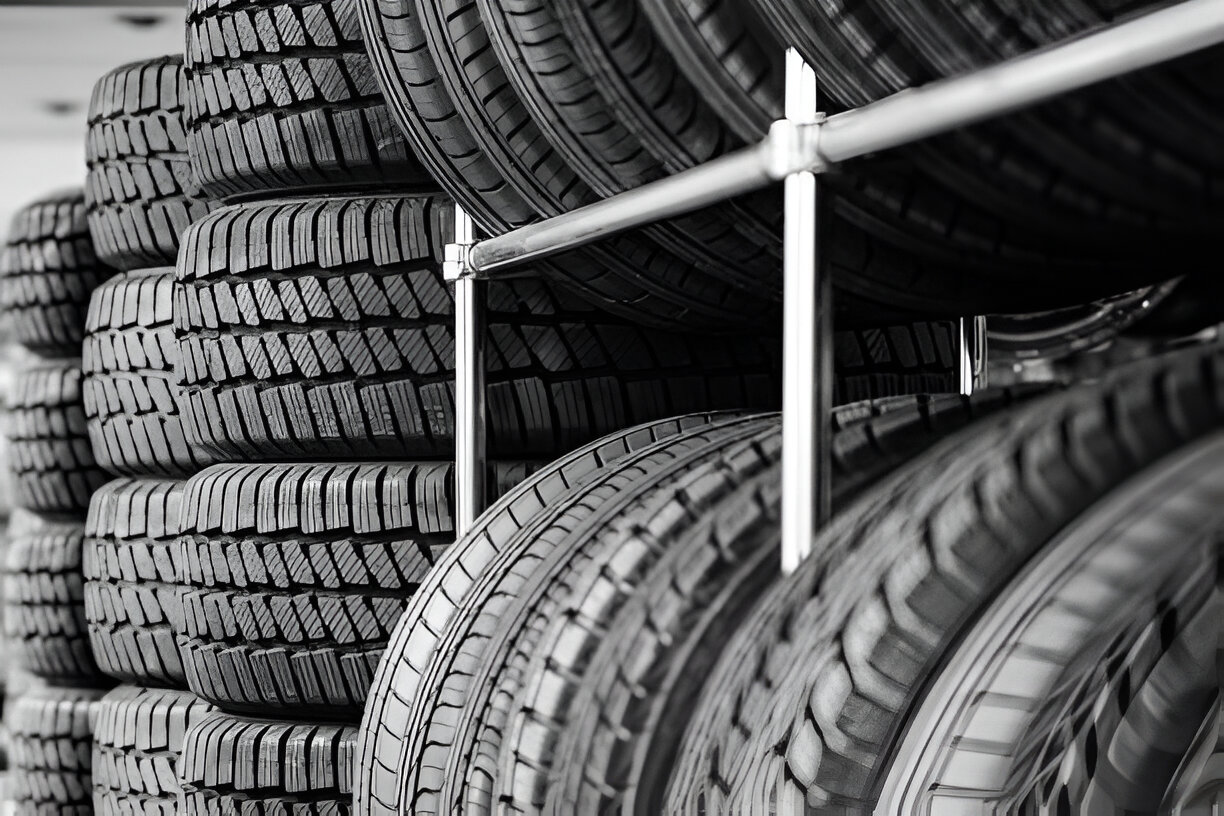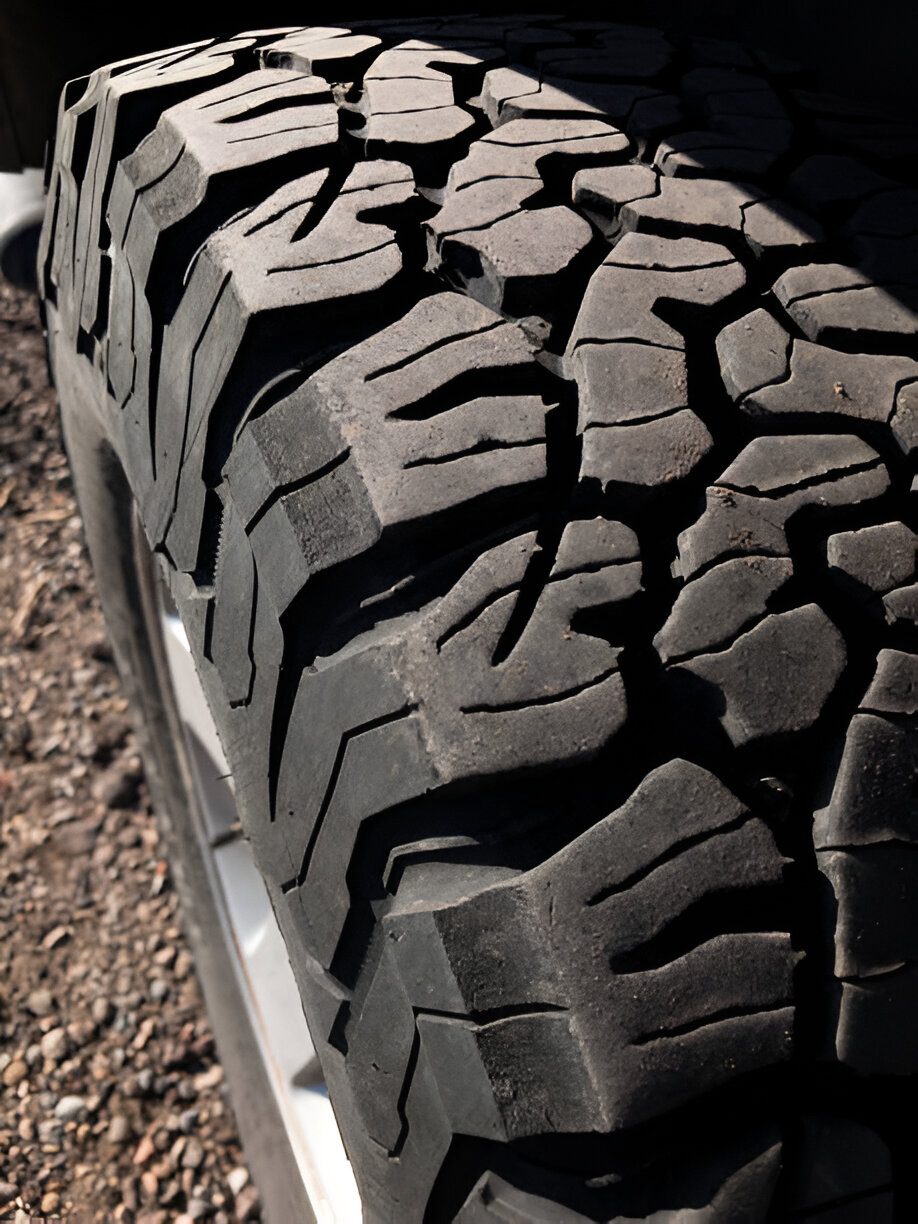Last Updated on August 24, 2024
Choose the Right Tires for Year-Round Confidence
When it comes to ensuring your vehicle’s performance and safety, your choice of tires plays a pivotal role. It’s not just about having rubber meet the road; it’s about making the right tire choice for your diverse and ever-changing conditions.
In this article, we delve into the tire showdown of the century: all-season vs. all-weather tires. Which one should you equip your vehicle with to conquer the road, come rain or shine?
All-Season Tires: The Jack of All Trades
In the quest for year-round driving confidence, all-weather tires emerge as the ultimate road masters. These remarkable tire solutions are engineered to excel in the pleasant spring and summer days and when winter’s chill sets in. With their ability to handle various conditions, including snow and ice, all-weather tires take the crown in year-round performance. Let’s delve into their technology and uncover why they’re the go-to choice for drivers seeking unwavering confidence behind the wheel.
Versatility Personified
As the name suggests, all-season tires aim to provide acceptable performance in various weather conditions. They are designed to handle dry and wet road surfaces and perform moderately well in light snow. All-season tires might seem ideal if you live in an area with mild climate fluctuations due to their year-round usability.
Tread Pattern
The tread pattern of all-season tires is a hybrid of sorts, striking a balance between grip on dry roads and water dispersion on wet ones. They feature moderate siping for traction in light winter conditions. These tires aim to provide a comfortable and quiet ride for daily commuters.

All-Weather Tires: Mastering Year-Round Confidence
In the world of tires, where safety, performance, and reliability are paramount, all-weather tires are a beacon of versatility and assurance. These exceptional tire companions go beyond the ordinary, offering drivers unrivaled year-round confidence.
But what makes all-weather tires so remarkable?
How do they master the challenges of every season, from the scorching heat of summer to the icy grip of winter? Join us on a journey through the technology, design, and benefits of all-weather tires as we unveil the secrets behind their ability to conquer the ever-changing landscapes of the road.
The All-Weather Advantage
All-weather tires take versatility a step further. They are crafted to perform in rain, mild winters, and more challenging winter conditions, including snow and ice. These tires bear the Three-Peak Mountain Snowflake (3PMSF) symbol, indicating their ability to handle winter’s worst.
Tread Pattern
The tread pattern of all-weather tires is purposefully designed to excel in all seasons. It features deep grooves and many sipes, ensuring optimal grip on slippery surfaces. This makes them a superb choice for regions with unpredictable weather.
Choosing Your Perfect Tire: What Matters Most?
Choosing the perfect set of tires for your vehicle is no ordinary decision; it directly influences your safety and driving experience. It’s not just about finding the right tire size; it’s about understanding the nuances of climate, location, and driving habits. What truly matters when making this crucial decision? Join us as we navigate the terrain of tire selection and explore the factors that should top your list when choosing the ideal rubber companion for your vehicle.
Climate and Location
Consider where you live and the typical weather conditions you encounter. If you face harsh winters with substantial snowfall, all-weather tires may be the better choice. All-season tires can suffice for milder climates with occasional rain or light snow.
Driving Habits
Your driving habits play a crucial role. If you commute daily, all-season tires offer a comfortable and reliable option. However, all-weather tires provide superior safety and performance if you’re an adventurer or frequently drive in challenging conditions.
Budget
Budget is always a factor. All-season tires are often more budget-friendly upfront, but all-weather tires can provide long-term savings by eliminating the need for seasonal tire changes and purchases.

All-Season vs. All-Weather Tires
Choosing between all-season and all-weather options can significantly impact your driving experience in automotive tires. Let’s explore the critical distinctions between these two types of tires to help you make an informed decision based on your driving conditions and preferences.
| Aspect | All-Season Tires | All-Weather Tires |
| Tread Pattern | Moderate tread with a balance of wet and dry performance | A deeper and more aggressive tread is designed for better traction in snow and slush |
| Temperature Range | Best for mild climates; struggle in extreme cold and hot conditions | Designed for a more comprehensive temperature range, including winter conditions |
| Snow and Ice Performance | Limited traction in snowy and icy conditions; not ideal for winter driving | Better traction in snowy and icy conditions; suitable for winter driving |
| Wet Road Performance | Good in wet conditions; handles light rain well | Suitable in damp and rainy conditions |
| Dry Road Performance | Decent dry road handling; fit for everyday driving | Proper dry road handling; ideal for most daily driving |
| Noise and Comfort | Generally quieter and more comfortable than winter tires | Generally more peaceful and more comfortable than winter tires |
| Tire Lifespan | Typically, it has a longer lifespan compared to winter tires | Typically, it has a shorter lifespan compared to all-season tires |
| Cost | Often more affordable than all-weather tires | Typically more expensive than all-season tires |
| Ideal Usage | Mild climates with occasional rain and light snow | Areas with unpredictable weather, including winter conditions |
Conclusion
In the all-season vs. all-weather tire showdown, the choice ultimately boils down to your location, driving habits, and budget. All-season tires are versatile for milder climates, while all-weather tires offer the peace of mind needed for unpredictable weather. Invest in the correct set of tires, and you’ll equip your vehicle for year-round confidence on the road, no matter the conditions.
Equipping Your Vehicle With Confidence Starts NOW!
Discover a treasure trove of tire-related insights! Don’t miss out on more valuable articles waiting for you at Tires Easy’s website.
- Snow Tires Guide: Mastering Winter Roads For Safety And Performance
- Winter Tires Vs. All Season Tires: A Comprehensive Guide To Making The Right Choice
FAQs
What does all-weather tires mean?
All-weather tires are specially designed to provide reliable performance in various weather conditions, including rain, snow, and ice.
Are all-weather tires good for rain?
All-weather tires are excellent for rain, offering reliable traction and grip on wet road surfaces.
What is the downside of all-weather tires?
Although all-weather tires may have a slightly higher upfront cost than essential all-season tires, their year-round usability often results in long-term savings.
Should I use all-weather tires?
Your choice of tires should align with your location, driving habits, and budget. All-weather tires are an excellent choice for regions with unpredictable weather and drivers who value safety and performance.
Is getting all-weather tires worth it?
Yes, all-weather tires offer the advantage of year-round usability and can be a worthwhile investment, especially in regions with varying weather conditions.
Can all-season tires be used year-round?
All-season tires are designed for year-round use, but their performance in extreme winter conditions may be limited compared to all-weather tires.
-
Writer










